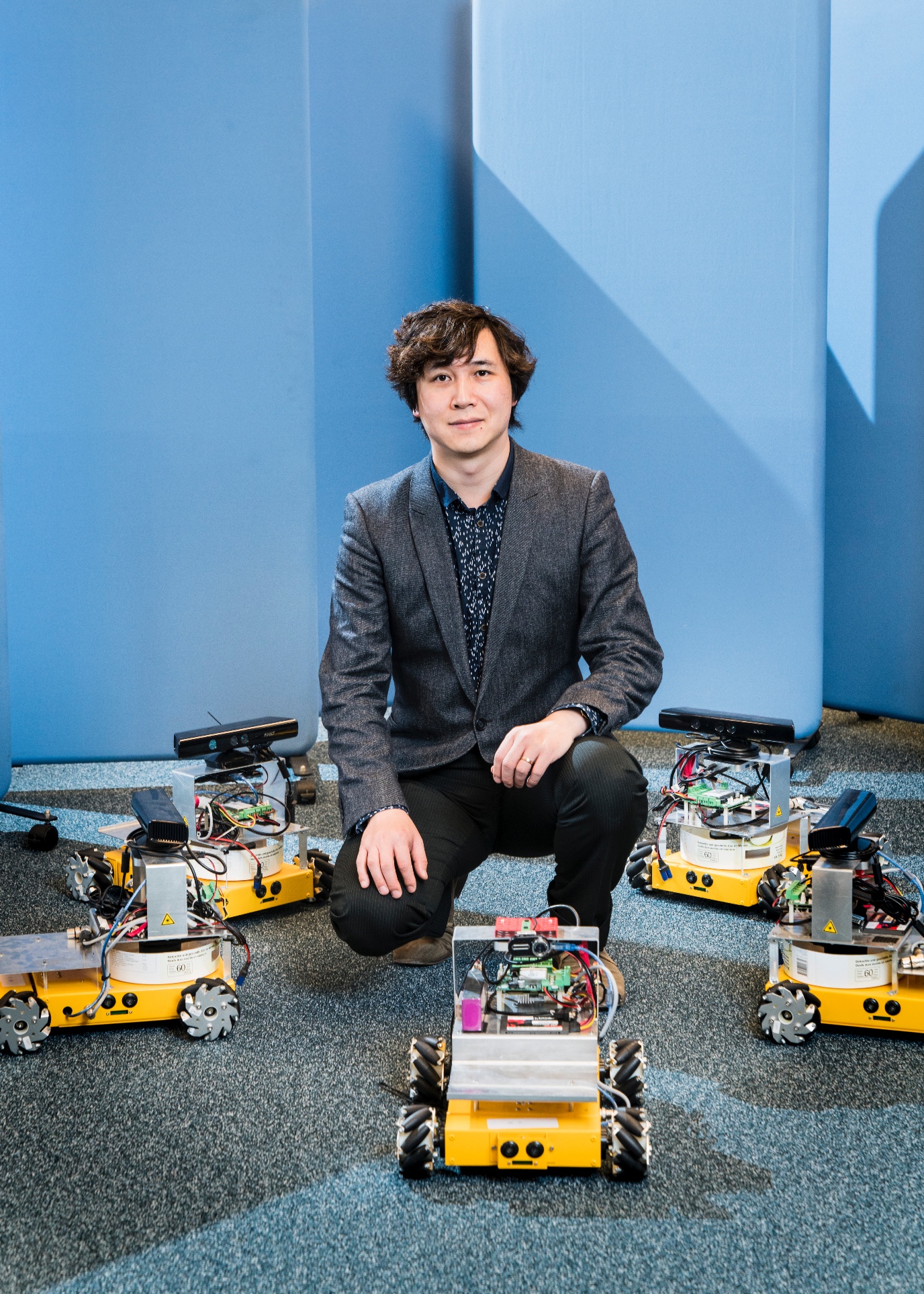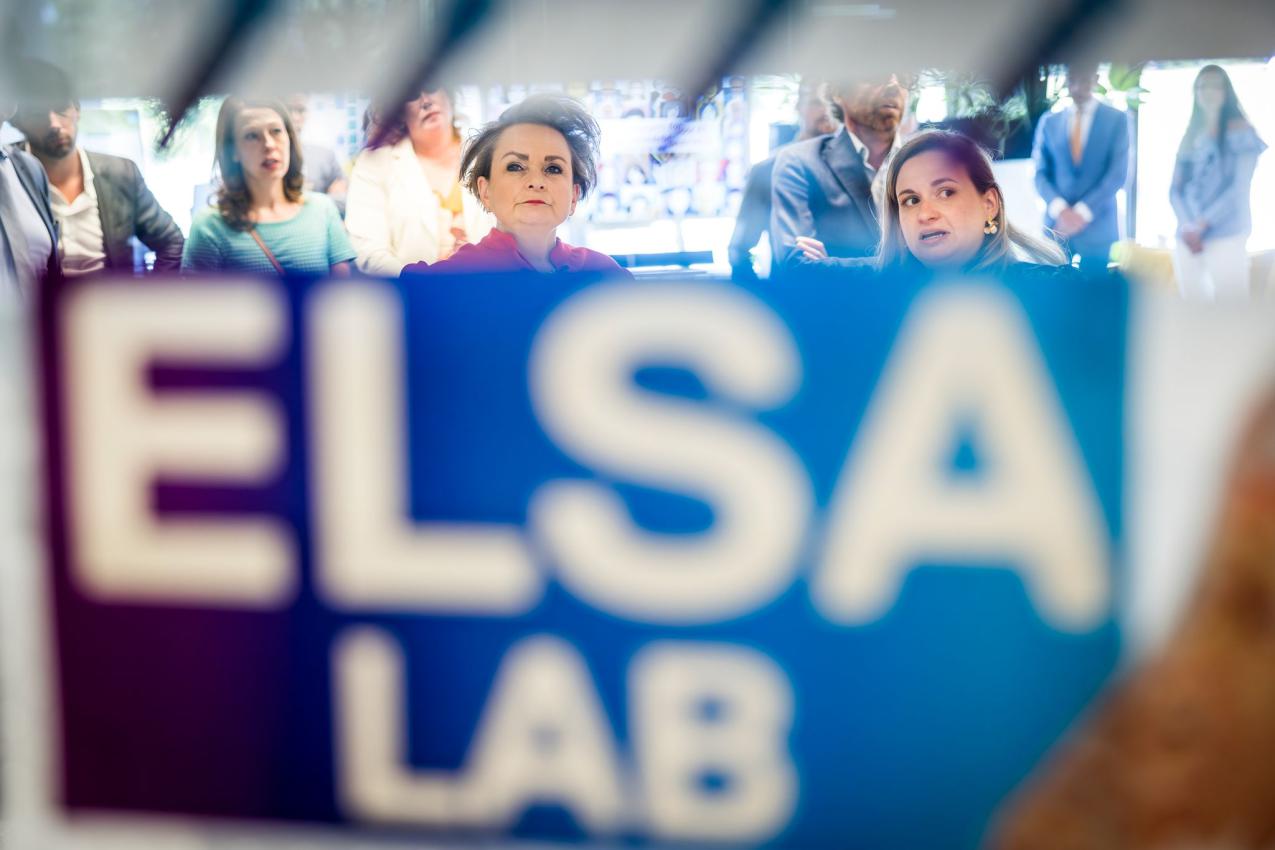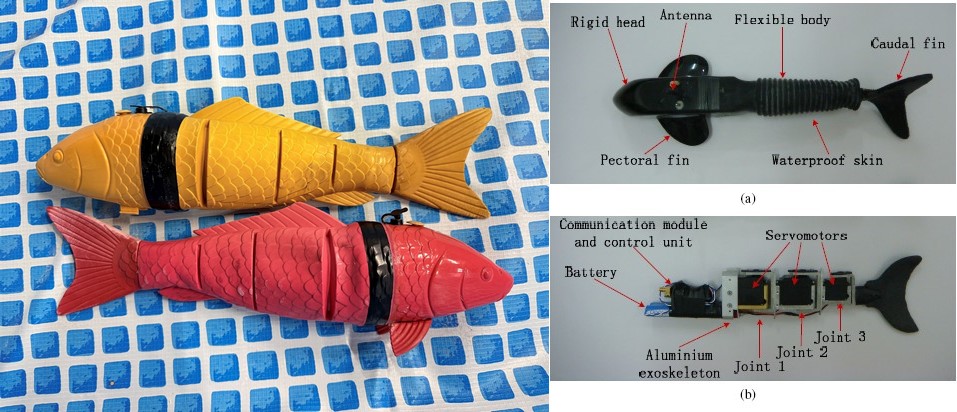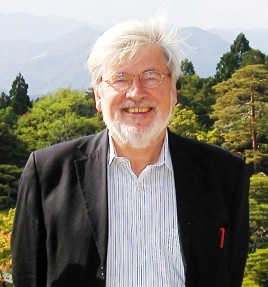Rockets, robots, and regulations

Electrical engineer Ming Cao needs to understand the inner workings of fish, humans, and computers in order to figure out how to control complex systems, such as groups of robots that work together, or humans using electricity through power grids. Cao is Professor of Networks and Robots and Director of the Jantina Tammes School of Digital Society, Technology and AI. His work is not limited to engineering alone. As head of the ELSA Lab for Technical Industry, he also tackles the ethical, legal, and societal aspects surrounding AI.

As an engineer, you also lead an ELSA lab, which explores the ethical, legal, societal, and economic aspects of artificial intelligence. Why is that important?
AI is not just a technological topic, and what matters even more to me is that it affects all these different areas. After all, AI has many controversial aspects. For example, to what extent should we allow our students to use generative AI for their assignments? And then, of course, there are important questions regarding privacy. Take, for example, a factory that uses autonomous robots equipped with cameras to navigate the factory floor. This means that they will also record human workers. This could be a violation of the European AI Act, which protects the privacy of those workers.
Another, more fundamental question is how far we can trust robots powered by AI. This is an important aspect when it comes to using robots in homes or hospitals. To answer that question, AI must be explainable, and we need to be able to verify how it works.
ELSA Lab for Technical Industry

The ELSA Lab for Technical Industry tackles the ethical, legal, societal, and economic challenges of AI adoption in the technical industry. The main concern is the slow uptake of AI in Dutch manufacturing, particularly among small and medium enterprises. If this continues, it could harm the sector’s global competitiveness, deepen inequalities between companies that embrace AI and those that do not, and create imbalances in the job market. Moreover, it risks undermining national industrial independence and missing key opportunities to contribute to global sustainability goals.
Your engineering work is in the field of systems and control. What does that mean?
The field of systems and control provides the modelling and control theory for various engineering applications. It provides a mathematical model that describes how systems work: what is the input, how does that affect the output, and what could be the feedback to the system’s state? Take an air conditioning system, for example. It measures the temperature and compares it to the set value: if the temperature is too high, it cools the room, and if it is too cold, it heats the room. I use it for more complex applications, for example, enabling groups of robots to work together and make coordinated decisions.
You collaborate a lot with other disciplines. Can you give some examples?
Working at a comprehensive university means that there are plenty of opportunities to collaborate with other disciplines, such as social sciences, psychology, or economics and business. For example, I work with psychologists and sociologists to better understand the interaction between humans and robots.
In another project, I collaborated with biologists to build swimming robots inspired by fish. Together, we developed an algorithm that describes how real fish swim, and implemented this in the robotic fish. And in the framework of yet another project, we looked at how behaviour is coordinated in groups of animals, and the decision-making involved.

Control theory in Groningen

The mathematical tools for systems and control date back to the space programme in the 1960s, when they were developed for spacecraft that had to be able to adjust their flight paths automatically. Control theory made this possible. During this period, a Belgian electrical engineer, Jan Willems, obtained his PhD in the United States at the renowned Massachusetts Institute of Technology (MIT), where the leading scientists in the field of control theory were working at the time.
Willems came back to Europe and was appointed to the Department of Mathematics at the University of Groningen in the Netherlands. Under his guidance, the University of Groningen became one of the leading institutes for control theory. He also founded the Dutch Institute of Systems and Control (DISC), a national graduate school and research network. He retired in 2003 but went on to publish around 100 papers before his passing in 2013. In his honour, the University of Groningen’s centre for systems and control was named the Jan C. Willems Center.
More about Jan Willems in this obituary, published in the journal Automatica.
Why are the humanities important for engineering?
It is vital to understand complex systems in which humans are involved. As a postdoc, I already worked with psychologists — that was part of my training. Take, for example, mixed teams consisting of humans and robots. If you want to understand how such teams work, you need to understand human behaviour. Another example is smart grids. People use and produce electricity. To prevent high peak loads on the grid, the goal is to influence their behaviour through price differentiation, for example. To find effective ways to do this, we make sociological observations and translate them into a mathematical model. We then analyse how the system works and figure out how we can achieve our goal.
Some people would say that using all this technology is a bad idea.
Well, there is no turning back. And even if there were, I do not think it is wise to simply reject new technology outright. But we do need regulations. Technology has advanced faster than the development of legal frameworks and societal aspects. That is why I wanted to lead the ELSA lab: in my opinion, the only way to move forward is by taking into account all ethical, legal, and societal aspects. And as researchers, we have our own scientific responsibility, a duty to comply with ethical standards and regulations.
So what good can AI bring us?
First, I believe our expectations of AI are a bit over-promised. Just look at smart robots trying to climb stairs. The technology is developing, but not as fast as people imagine. That said, I believe that there will be real breakthroughs in smart factories and hospitals. In that case, the AI that is used should incorporate the full ELSA package.
I am cautiously optimistic about this, but we have to develop our own technology to safeguard our value systems. There is an advantage to having low-ethics technologies, but we have a duty to comply with our ethical standards and regulations. We do have a European AI Act, which is better than similar acts in the US and China.
Finally, do you still feel like an engineer, now that you are involved in so many other disciplines?
Yes, I am still an electrical engineer. That is the foundation I am rooted in. And when you have roots, you can grow outward.
More news
-
17 February 2026
The long search for new physics
-
10 February 2026
Why only a small number of planets are suitable for life
